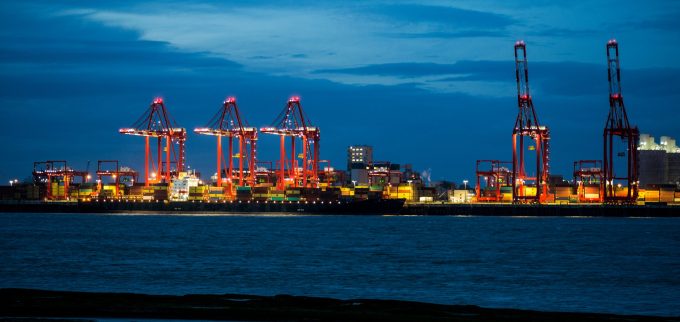Demands for improvement to governance and transparency at UK freeports
The UK cross-party Business and Trade Committee has demanded the government “urgently improve” governance and ...

UK retailers and port operator Peel Ports have called on shipping lines and the government to push for a new port of entry strategy.
Although 90% of deepsea containerised cargo enters the UK by southern ports, such as Southampton and Felixstowe, 60% of these goods ultimately head for the north and are then moved to their end destination via road and rail.
This has caused numerous challenges, including insufficient train and HGV driver numbers, congested roads, cargo delays, ineffective landside logistics and added pollution from long, unnecessary road journeys, said Stephen Carr, commercial director at Peel Ports.
Various UK retail leaders have called for shipping lines to introduce a new north/south, two-port UK strategy, which would see shipping lines utilise both northern and southern ports for delivering deepsea containerised cargo.
Freight manager at retailer Home Bargains owner TJ Morris, John Cavanagh, said: “The benefits that a two-port strategy brings are lower transport costs and a reduction in carbon emissions, as well as providing us with quick and easy access to containers, which allows us to have more efficient processes.
“Cost is important to us; empty containers can be returned quickly, which means we don’t have any detention storage fees.”
Trinity Logistics MD Amanda Unsworth said: “We need senior leadership in our industry to commit to a two-port strategy.
“If you bring cargo destined for the north into southern ports it leaves you open to all sorts of issues. It just makes sense to bring goods in closer to the end user – it’s easier to manage and it reduces the risk of delays, as well making us better able to react to situations as they arise.”
Ms Unsworth suggested that Liverpool would be the ideal choice for a northern hub port. However, a current issue is that transit times from the continent are slower into Liverpool than in the south.
Ms Unsworth and Mr Cavanagh are lobbying for shipping lines to offer a direct call from China to Liverpool to combat this.
“The most restrictive measure is the shipping lines not thinking outside the box and looking at the port of Liverpool. People need to look at supplying to the north more than they do. MSC does this, but we need other lines to look away from southern ports and create a direct line from China,” explained Ms Unsworth.
“Lots of customers deliver to Yorkshire, Manchester, Liverpool and so on, so it just makes sense to bring the cargo into Liverpool.”
Peel Ports, the UK’s second largest port operator, recently surveyed hundreds of UK retail leaders and cargo owners to find 76% want to see goods imported closer to their end destination, and 79% believe more efficient transport of goods is required to reduce greenhouse gas emissions.
Mr Carr concluded: “Retail industry leaders have spoken. They want a multi-port import strategy to release the pressure on the supply chain they so heavily depend on. Now is the time for our industry to work together to implement a two-port strategy without delay.”
Interested in ports around the world? Listen to this clip from The Loadstar Podcast about why DP World’s Prince Rupert terminal in Canada is now a viable west coast gateway to North America:
Comment on this article
Andrew Grodecki
March 06, 2024 at 4:23 pmThere was huge investment in Liverpool 2 container terminal to attract the Asian mega ships which hasn’t materialized, & ultimately resulted in significant redundancies so it’s not surprising Peel Ports are banging on about this. It may be greener in some respects but I can’t see it gaining any traction in the immediate future with the delays and schedule upheavals – not to mention increased fuel costs and transit times for shipping lines – brought on by the security situation for shipping in the Red Sea which isn’t likely to change in the foreseeable future
Brian Pendleton
April 15, 2024 at 6:29 amIt’s common sense,and more importantly saves money.